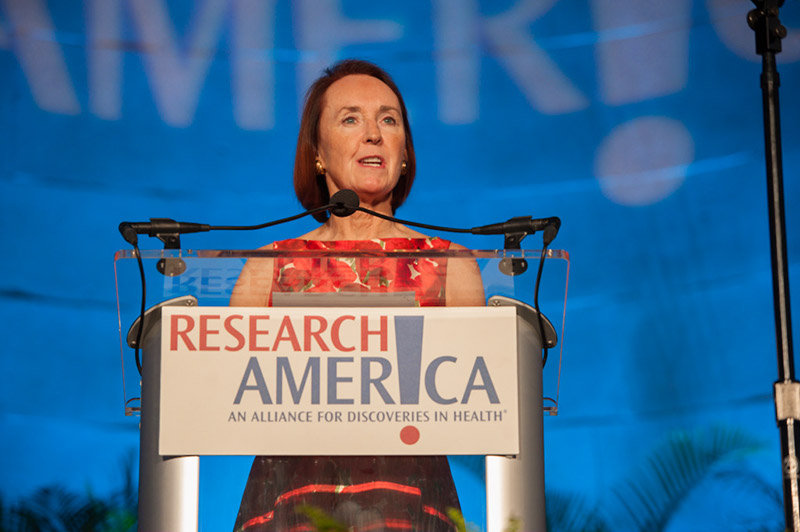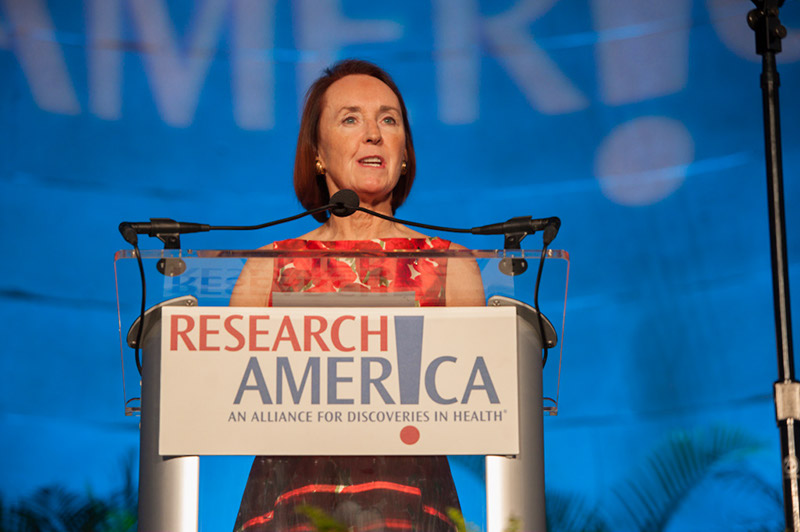Leadership matters

 Dear Research Advocate,
Dear Research Advocate,
The House Labor-HHS Appropriations Subcommittee markup of Fiscal Year 2020 spending priorities on Tuesday featured lots of good news. You can watch the subcommittee’s deliberations here and find draft text of the bill here. The next stop is consideration by the full Appropriations Committee on May 8, 2019.
Some highlights: $41.1 billion for the National Institutes of Health, an increase of $2 billion above last year; $8.3 billion for the Centers for Disease Control and Prevention, $921 million above the 2019 enacted level, including new funding for efforts to support modernization of public health data systems (for example, to track and prevent the spread of outbreaks); new funding to both CDC and NIH to research firearm injury prevention; and $358 million for AHRQ, an increase of $20 million over last year.
These funding increases are a welcome statement of leadership for public health and medical research, but significant hurdles lie ahead; most critically, the lack of an agreement to raise the budget caps. Research!America and our Raise the Caps partners sent a letter to House and Senate Leadership today emphasizing the need for a bipartisan agreement to raise the budget caps. Please do your part and contact members of Congress using this editable email— tell them that health and research innovation — and thus patients — will suffer if they fail to raise the budget caps.
For additional motivation to step up your advocacy, I recommend reading the letter recently sent by Norman Augustine and Neal Lane, PhD, to House and Senate committee leadership. Augustine, who held posts as Undersecretary of the Army and Chairman/CEO of Lockheed Martin, and Lane, former National Science Foundation Director and science advisor to President Clinton, paint a chilling picture of how insufficient attention to science and innovation as an economic driver has led to our nation’s diminishing status as a global leader. They provide a well-grounded set of recommendations.
Many of Lane and Augustine’s concerns were raised by leaders in biodefense research gathered at UTMB in Galveston from across the country for a networking meeting earlier this week. I was invited to give a keynote on the public context of research, and valued the opportunity to learn from those assembled, including Ian Crozier, MD, the remarkable Ebola survivor who continues his work at the bedside in the DRC. The challenges he recounted are almost unimaginable. Progress is limited and hard-fought. It is surprising to me that there isn’t more media attention to the increasing peril to us all from that re-charged epidemic.
Acting FDA Commissioner Dr. Ned Sharpless addressed the Food and Drug Law Institute’s Annual Conference today. He noted, “If we want to harness the full potential of therapies to transform care, we need to become more efficient, more collaborative, and more data-driven so that we can learn from every patient’s journey.” Read more of the Acting Commissioner’s remarks here.
The Friends of PCORI are circulating a House and Senate sign-on letter (here is the Senate letter) to urge members of Congress to reauthorize the Patient-Centered Outcomes Research Institute (PCORI). To add your organization’s name, email [email protected] before COB tomorrow.
Please consider submitting nominations for the 2020 Research!America Advocacy Awards. Click here to preview the nomination form and here to nominate an outstanding individual or organization whose efforts have been notably effective in advancing our nation’s commitment to research. Don’t delay!
Sincerely,
Mary Woolley




